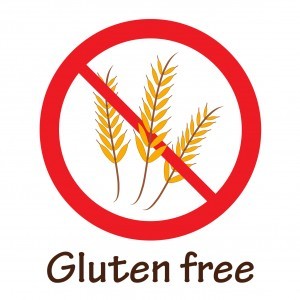If you're like the average person than you may struggle trying to keep up with all the nutritional rules nowadays. Do we eat saturated fat? What about trans fat? Can we have carbs? If so, what types and how much? [caption id="attachment_4138" align="alignleft" width="300"] There are lots of opinions on whether to eat gluten or not. Ask 10 different fitness professionals a number of nutritional questions such as these and you are going to get a variety of answers. Consider for example what people believe about gluten. You know about gluten right? It's the stuff that gives baked goods such as bagels, bread and pasta their stretchiness. But you also find it in sauces, dressings, gravies and many other products. Add to this the fact it may be listed by the Latin names for the wheat that contains gluten and it can hard to identify its presence and be truly gluten-free. So why eliminate gluten from the diet? Well those that have an allergy to this protein may experience gastro-intestinal problems, inflammation, anemia and fatigue. And if you don't have celiac disease (CD) should you eliminate gluten from the diet? Because we have been told that this protein is non-essential and therefore we don't need to have it in our diets. And even if we aren't fully allergic to gluten it is possible that we may be still be sensitive to it and benefit from a gluten-free approach. Well that's what many food manufacturers would have you believe. When you consider that about 0.5% of the population has celiac disease but 20% of us purchase gluten-free products I'd say the food industry has done an effective job of getting the message out to switch to gluten-free products. Why the special interest in convincing you to buy gluten-free? Well it comes down...
